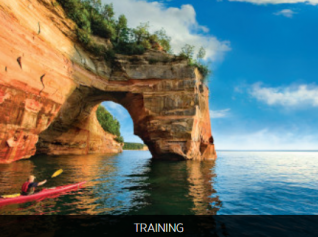Sustainable Tourism: The Real Thing
Sunday, 27 Oct, 2010
0

The Wakhan
See video selection: Vice-Minister ofTourism: Tajik Tour Operator: Afghan Tour Operator: Lady Serena Hotel Manager:
I’m in a flyblown Central Asian mountainside café, looking at the flourishing beehives on the incline opposite and listening to the furious roar of the ice-fed river swirling and gushing outside.
Neatly lined up on the café’s glass shelves are thin plastic secondhand 2 litre water bottles full of an amber liquid and on sale for 50 Somoni ($11) a go. What’s in the bottles? Honey apparently. Each bent and buckled bottle holds 2kg of honey from those bees opposite. Pure authentic honey 100% sustainably sourced, packaged and delivered.
That’s the thing about Tajikistan: In this poorest of the ex Soviet republics, sustainability is not a mantra of the middle classes – it’s a financial, cultural and social imperative.
If you or your clients want eco-luxury tell them to go to Switzerland or the Maldives. If they’re prepared to pay with money, pain, bruises and sleepless nights for heartbreaking beauty and true authenticity then Tajikistan’s Pamir Mountains are for them.
Pain and bruises? Yes, the journey to our stop in the café involved a full day drive along a dangerous track perched high on the Tajik side of the sensational Panj river gorge (the border between the Tajik part of Badakhstan and the Afghanistani bit). All day we’d bumped along uncomfortably in our 4wd, negotiating the occasional landslide and frequent ford, collecting bruises, but also grabbing memories of fabulous soaring sights, and gut-wrenching views of the people on both sides living truly grueling spartan lives.
After such tough days, you feel you truly deserve a comfortable, not to say luxurious, night. This is very rarely to be had in Tajikistan. That is not to say that good accommodation doesn’t exist, it simply depends on your interpretation of the term ‘good’.

Wakhan Hotel
If you or your clients call ‘good accommodation’ slick service, impeccable hygiene, downy comfortable beds, European-style fusion food and quality bathrooms – they will be disappointed.
If, on the other hand ‘good’ to them means a warm and heartfelt welcome, the generous sharing of cripplingly limited resources and a pride in their hosts’ culture and environment – in other words true hospitality – they will be more than satisfied.
The sad fact, or, perhaps the great opportunity is that tourism infrastructure in the Pamirs and Badakhstan, in truth, doesn’t yet exist.
The Aga Khan Development Network (AKDN) has earmarked tourism as a cross-border development opportunity and is now working to create methods for Tajik and Afghanistani SMEs in the area to take advantage of it but there is a very long way to go indeed.
A very big prize is on offer. The AKDN’s chosen venue, the Wakhan Corridor, originally created by the British as a buffer between its Indian (now Pakistan) interests and China, is a stunningly beautiful wilderness. On the one side of the river Afghanistan and on the other, Tajikistan – divided in 1925, kept separate and patrolled vigorously, latterly by the KGB, until 2006. The AKDN sees the potential for this area for tourism, economic development and, perhaps, harmony and is working to realize this.
At the moment, then, intrepid tourists can benefit from a real travel experience to a ‘Virgin’ mountain destination. They will be able to see at close quarters the sights of the Central Asian Silk Route – the confluence of East and West – where millions of travelers went before them taking commodities, ideas, cultures religions and armies to change our history. They will be able to feel the majesty of the scenery and the quietness at the 4,000m+ mountain passes. They will be able to share the lives of the local people.
But not for long, in a short time the area will develop its own (hopefully sustainable) tourism structure and one more set of values will travel through the mountains – tourism!
Authenticity is a big buzzword in today’s tourism industry, frequently used but rarely achieved. The truth is that it is a stage in development, not often the end product. What destinations usually provide is a form of cultural and environmental commoditization – in other words a sanitized version of the real thing.
Tajikistan, the Pamir Mountains and the Wakhan Corridor are the Real Thing, may they remain so for as long as possible…
Valere Tjolle
Get free sustainable tourism reports from Vision on Sustainable Tourism HERE
Valere Tjolle is editor of the Sustainable Tourism Report Suite: EXTRA SPECIAL OFFER at: www.travelmole.com/stories/1144873.php
See story in Italian by Stefano di Franceschi
Further information:Tajikistan Tourism: www.tdc.tj/ : Mountain Unity: www.mountainunity.org/ Pamiri Ecotourism: www.pecta.tj/en/
Valere
Have your say Cancel reply
Most Read
TRAINING & COMPETITION
 United Kingdom
United Kingdom United States
United States Asia Pacific
Asia Pacific












































EU airports bring back 100ml liquid rule
British Airways passengers endure 11-hour 'flight to nowhere'
CLIA: Anti-cruise demos could cause itinerary changes in Europe
Gatwick braces for strike
Co-pilot faints, easyJet flight issues ‘red alert’